By Liana Jacob
THESE PARENTS have shunned tradition and are using NETFLIX as an educational tool for their FOUR children INSTEAD of SENDING THEM TO SCHOOL.
Stay-at-home mum, Taylor Catron (24) from Ohio, USA, and her husband, Derek (28), decided not to go down the traditional schooling route by pulling their oldest child, Dereon (7), out of school in 2016 when they were researching primary schools.
Since then they have had three other children; Aerity (3), Aeviny (1) and Derek James, who is just eight months old. Unlike with the structure of school and classes, their days vary and they have chosen not to enforce a strict schedule to give them the freedom.
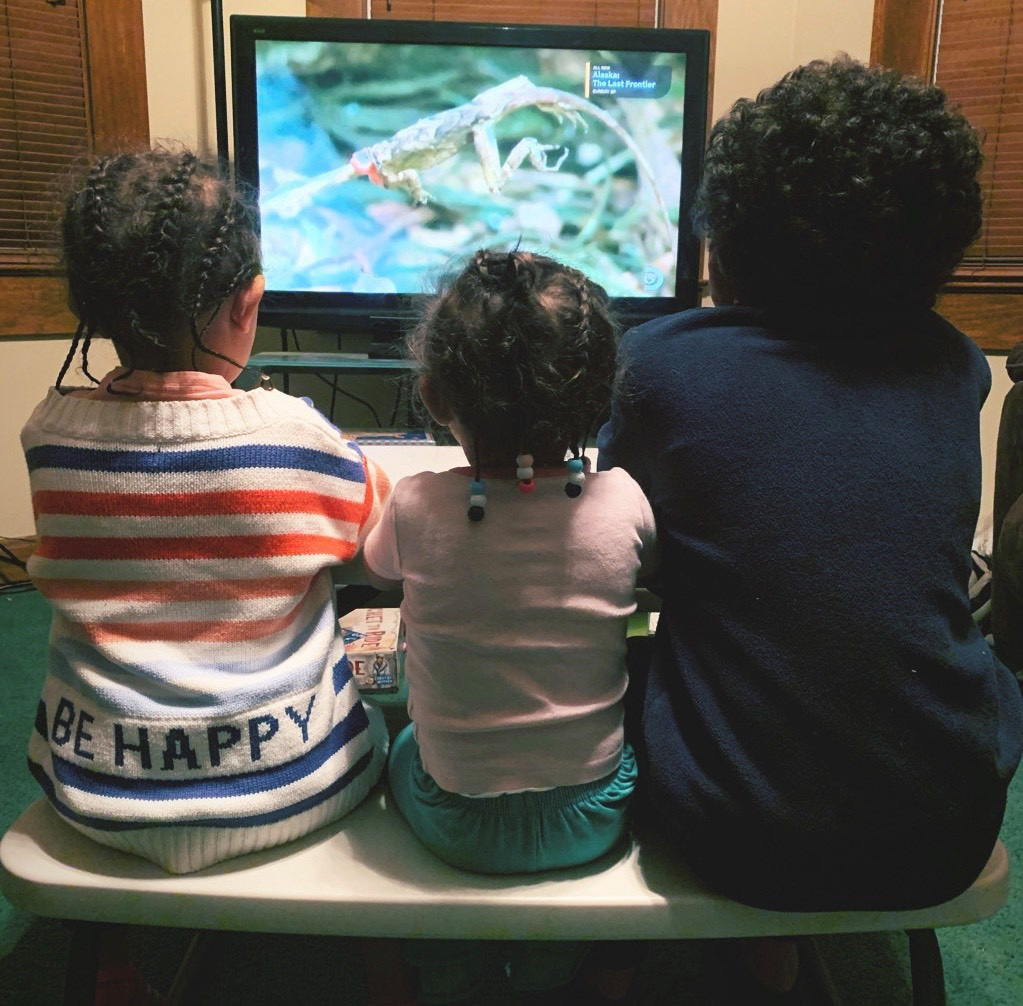
They take regular hikes in the city, visit cultural places like the Cincinnati Children’s museum, Contemporary Arts Centre and the Cincinnati Zoo. The biggest educational tool they use for their children to learn is Netflix where they watch many nature, wildlife and environmental documentaries that their children pick out, like Our Planet, Life Story, Abstract, Oceans and Blue Planet.
They also use YouTube as a source and while they do allocate a few times a week on using workbooks or worksheets, they don’t spend more than 30 minutes to an hour on this.
They feel this type of learning will prepare their kids for the real world instead of using their time being tested in exams or learning about subjects that may not benefit them in the future.
“We let the kids pretty much take charge; whatever they ask about or want to know about is what our lesson will be or what we plan for a future lesson,” Taylor said.
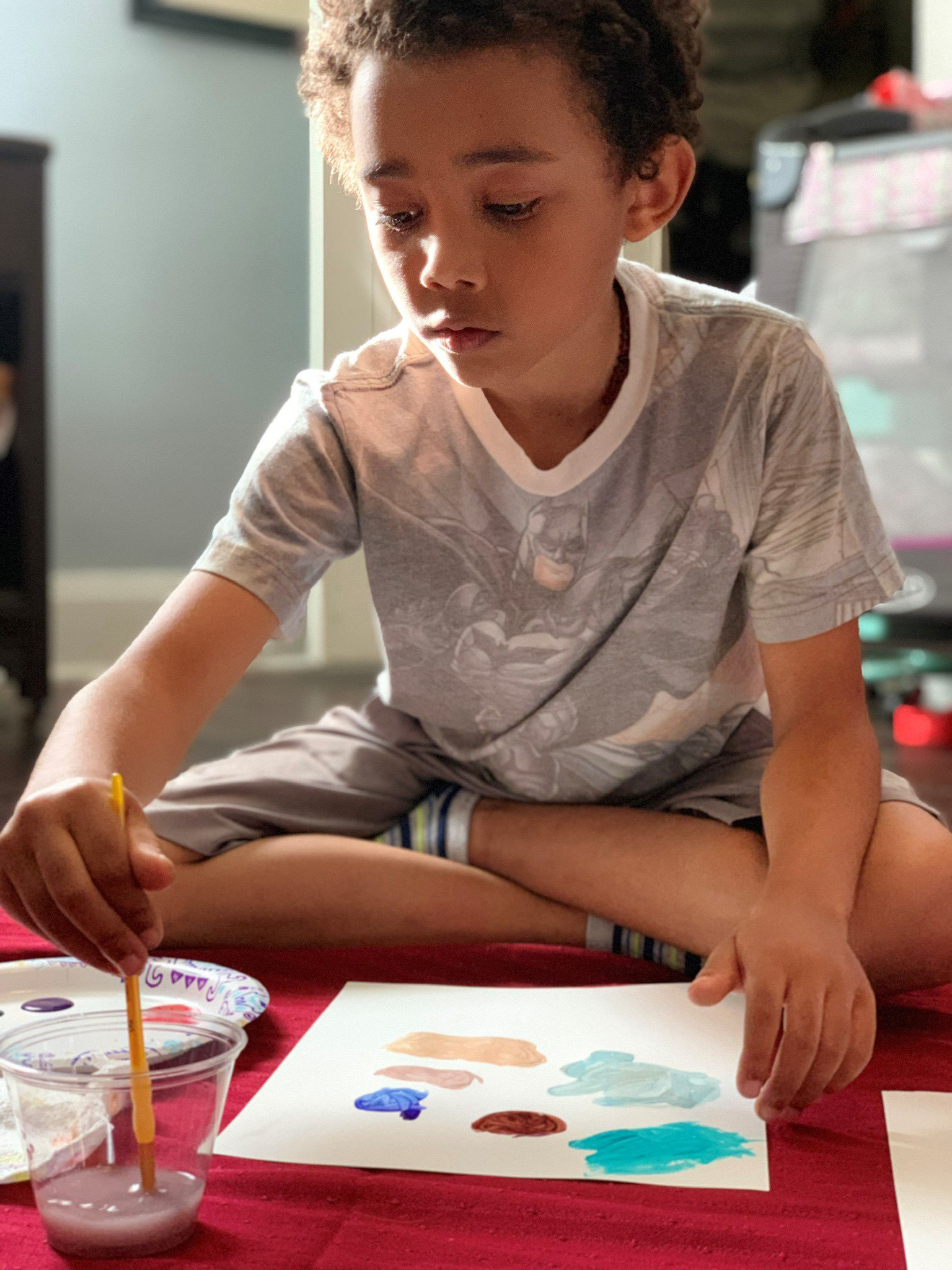
“I try to do a lot of play-based learning as well; we go to the zoo and museums and learning centres a lot! We do some structured learning (we have various workbooks we use) but try to keep it as minimal as possible.
“We also watch lots of documentaries and use Netflix as one of our biggest tools. To us it’s basically schooling our own way; I want the kids to learn through hands-on experiences.
“We eventually want to school them around the world and travel to different countries and continents and learn about everything literally on the go.
“We want them to learn through real life, there so many lessons that can’t be taught in a classroom of thirty-eight.
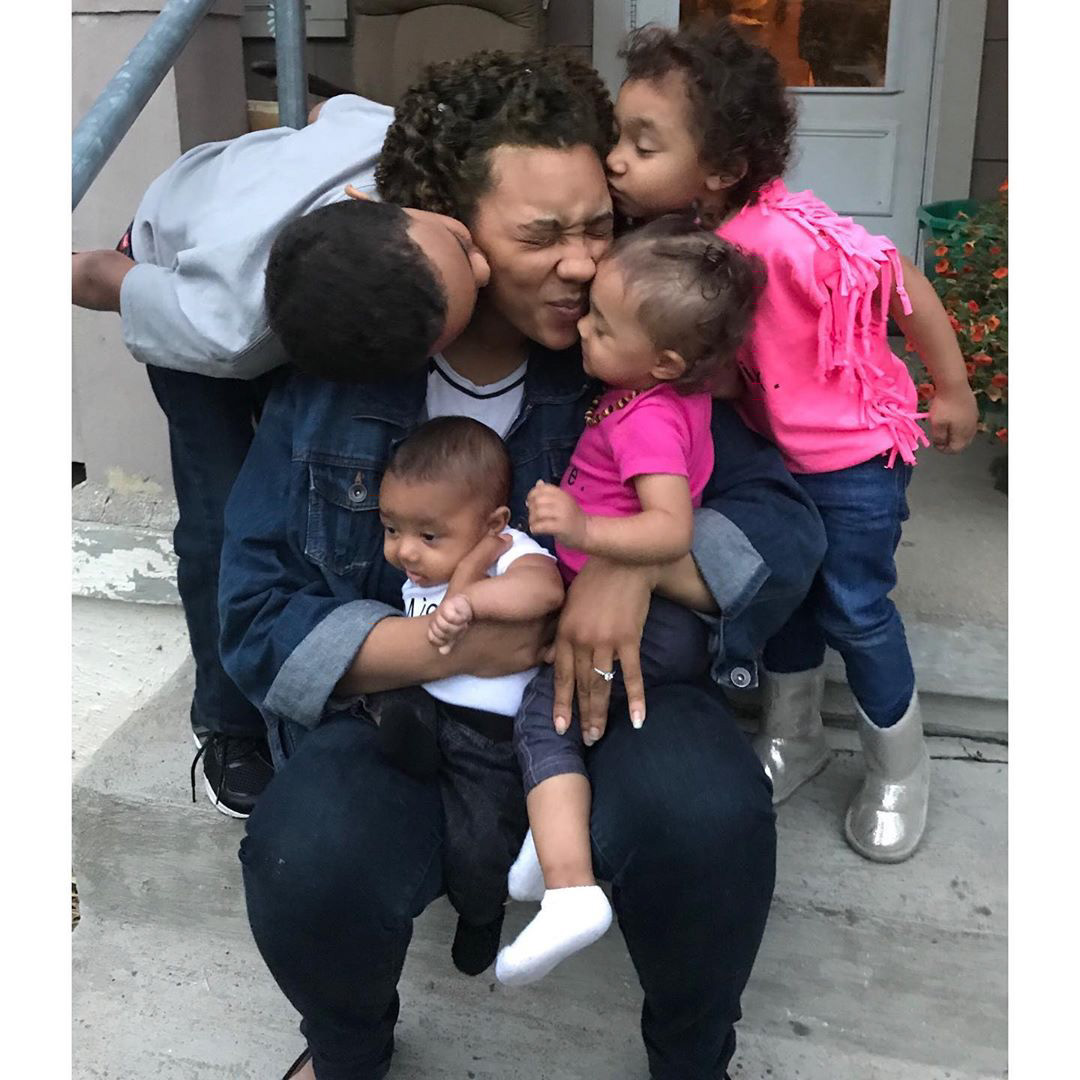
“There’s so much not taught in schools that we want our children to learn and I don’t believe in standardised testing and all that hoopla.
“What we do works really well for us and our children are so smart people are always amazed after having conversations with them. It’s the best choice we’ve made for our children, I think.
“Benefits of being able to use Netflix (and YouTube) is we can look up a show or series on basically anything the kids ask or want to know about.
“We’ve watched quite a few Netflix documentaries; Our Planet, Life Story, Abstract, Oceans, Blue Planet, Explained, Nature’s Weirdest Events, Growing Up Wild, Age of Tanks, and more.
“Some of their other favourite shows are Motown Magic, Wild Kratts, Super Why, Word Party, Storybots, and The Magic School Bus.
“I think these are educational because they’re watching and learning words, problem solving, kindness, creativity, fun facts, manners and so much more in a way and through characters they enjoy.
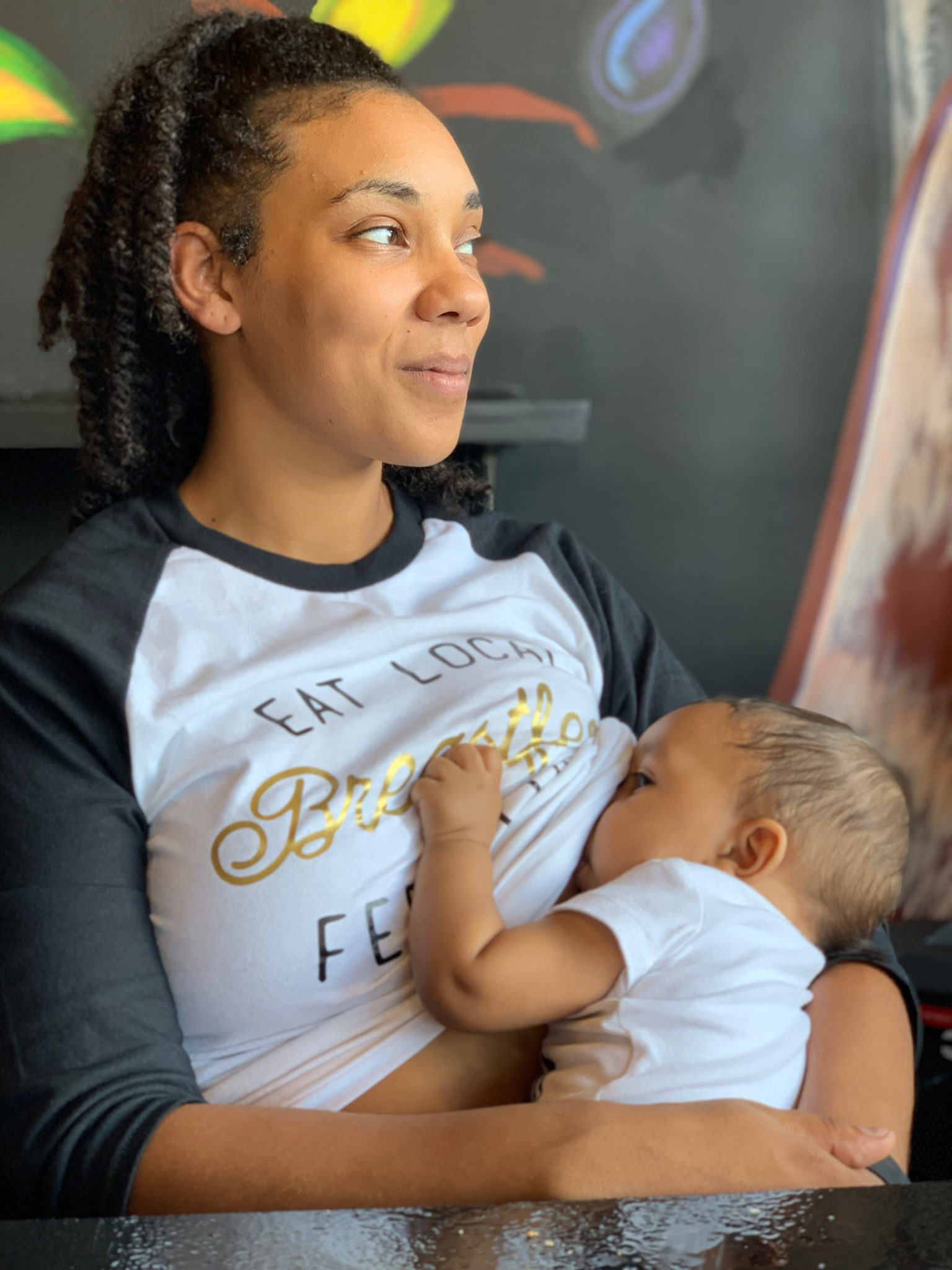
“Our days vary; we don’t really have a strict schedule or anything like that. We do try to get a workbook or worksheet in after breakfast a few times a week, but don’t spend more than thirty minutes to an hour on them.
“My kids are always asking questions and wanting to know about or more about something, they’re constantly learning even when we’re not trying. Which is kind of the whole point in unschooling to me.”
Taylor says that they plan to travel around the world full-time with their children once they can afford it, for them to learn about real-life events.
“Right now, the plan is to continue home-schooling and eventually world-school when we are financially able,” she said.
“Mostly what we find unappealing about traditional school is that it’s all about standardised testing and regurgitating information.
“You’re not there to learn you’re there to recite information and get good test scores. Not to mention all the important things that they don’t teach, like accurate historical events and African American culture and history.
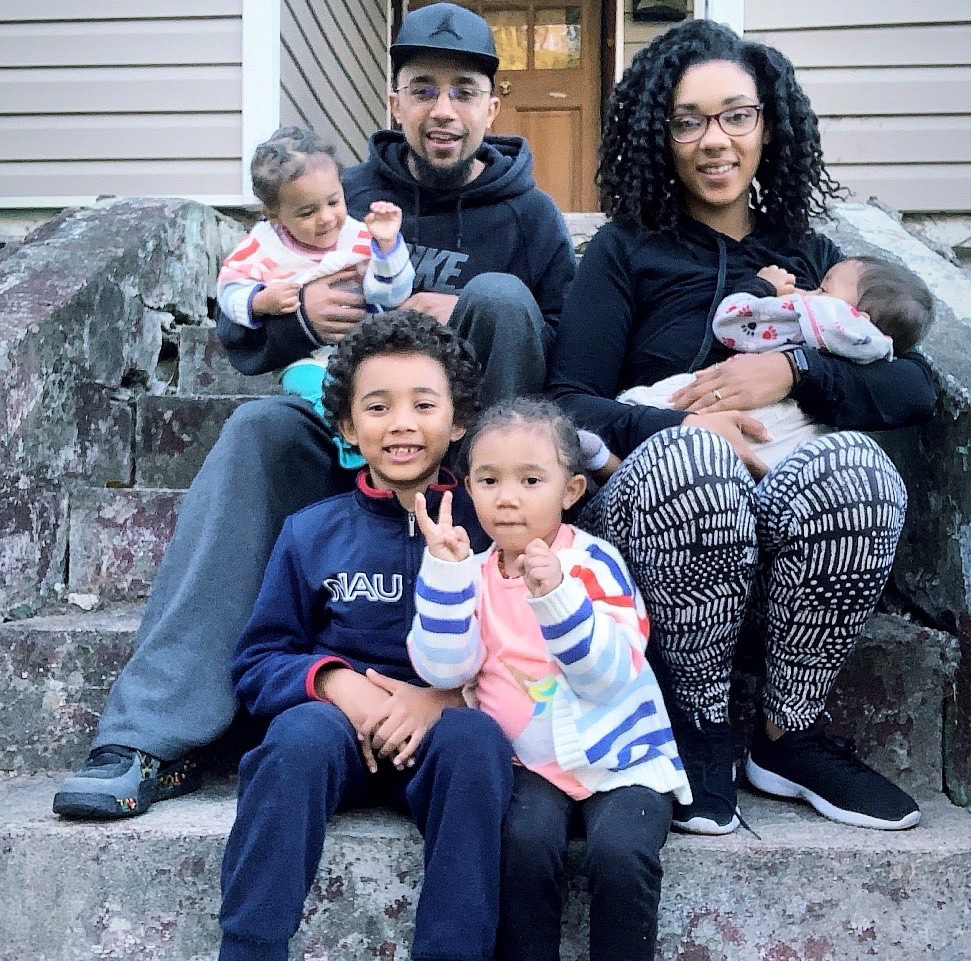
“On top of that it doesn’t nurture imagination and creativity; children aren’t meant to sit down and be still and quiet for six to eight hours a day. They are supposed to run around and touch things and ask a billion silly questions.
“My children have lots of friends that they see regularly and absolutely no problem making new friends. My oldest is the most outgoing child I’ve probably ever met.
“They make new friends everywhere we go. My smallest worry in home-schooling is that they don’t get enough interaction or socialisation with other kids or people.
“To anyone who might criticise this style of education I say, just because we do things differently doesn’t mean we’re wrong or not effectively educating our children.
“In fact, Finland has one of the best education systems in the world and they have no testing, no homework, and almost spend the entirety of their days outside and or playing.
“We’re not withholding education from our children, were just allowing them to learn in a way that works best for them.”






